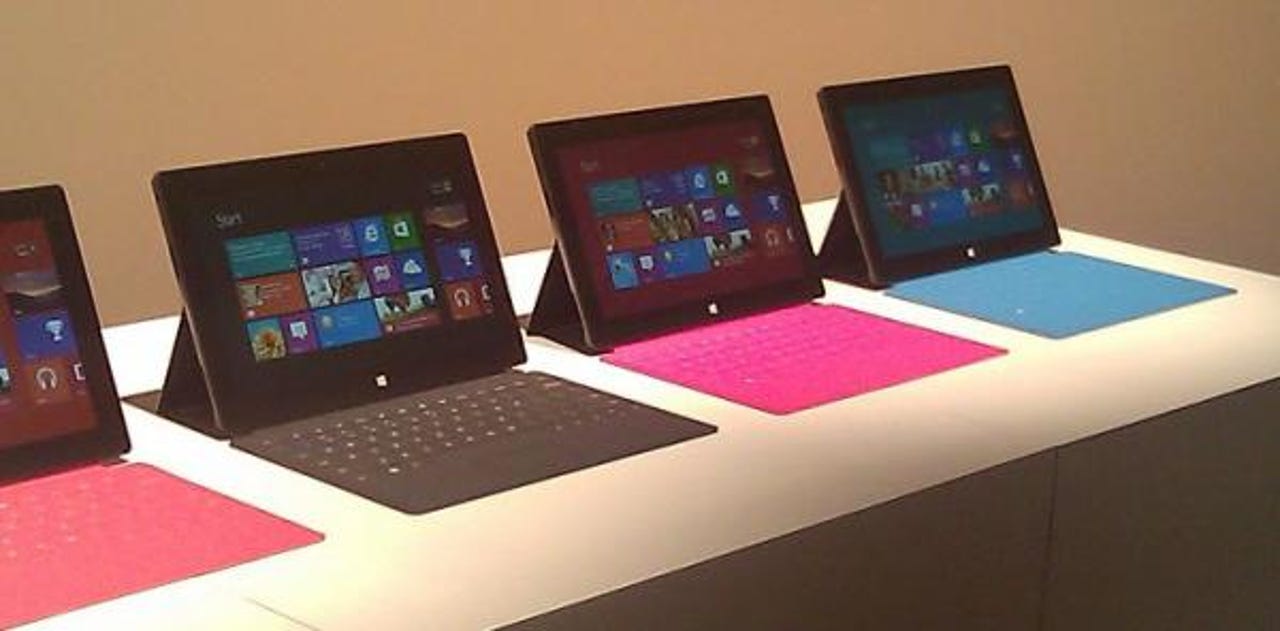Windows 8 Pro tablets: Not a good laptop replacement


As a tablet enthusiast I am looking forward to the Windows 8 slates that will start appearing later this year. The Microsoft Surface tablets look like capable entrants to the field, along with the just-announced ThinkPad Tablet 2.
The tablets that will run Windows 8 Pro have attracted a lot of attention from many I have corresponded with due to the ability to run not only the apps written for tablets but also legacy Windows apps. Many I have spoken to plan to get a Windows 8 Pro tablet for that legacy support.
I am hearing from more and more people that they see these tablets as laptop replacements. The Surface tablets will have a keyboard cover to turn it into a pseudo laptop, and others are likely to have similar accessories.
Others who plan to get a Windows tablet tell me they want to use it as their sole computer. They expect accessories to be available to let them drop the tablet into a dock that is connected to monitors, speakers, keyboard, and mouse, turning the slate into a full-blown desktop system.
These scenarios look good on paper but I'm afraid many of these tablet buyers will end up disappointed in the actual execution. I have used Windows tablets for a decade and the fact is legacy Windows apps rarely work well on a touch tablet.
Those apps should run fine in a laptop or docked environment as described above, but if that's the primary function of a Windows 8 tablet then a real laptop or desktop system will be far better . The price should be lower and the hardware components will certainly be better than those crammed into a little tablet.
Tablets have their uses, I am on record detailing how they work well for me for productive tasks. What makes that work is the fact I use my tablets (both Android and iPad) primarily as tablets. The ability to add a keyboard and get real work done is an additional benefit in my view. It's not the way I would plan a working system.
Laptops are now so thin and mobile that if someone's primary usage is to run Windows legacy apps there is little question they are the better way to go. Tablets with keyboards are restricted computers, and legacy Windows apps are not written for them. Laptops run these programs with ease and without compromise.
As for the tablet docking scenario, that looks good on paper but will fall short for most folks. I used such a system for two years (HP tc1100) and it worked, but not as well as a desktop PC with a cheap tablet would have worked. The tablet system was too anemic compared to most every desktop system it was replacing so it required compromise to use it.
I am excited about the Windows 8 tablets, but I hope those planning on buying the more expensive Pro version realize it's not going to be a 'do everything' computer. Non-tablet functions will not be as good as on laptops or desktops.
If buyers use them the way they are designed to be used they will be much happier with the result. They should be used primarily as tablets, running real tablet apps, with occasional use as a PC replacement an added benefit. Not the other way around.
Image credit: Ed Bott/ZDNet
Related:
- Ecosystem lock-in just may break the Surface
- Microsoft Surface tablets: A natural fit for healthcare
- Surface: Why Microsoft’s big mystery turns out to be a big mistake
- With Surface tablet, Microsoft breaks tradition
- Eight new platform announcements for Windows Phone 8
- Microsoft’s Windows Phone 8: There’s good news and bad news
- Microsoft Surface tablets: Obviously designed for me
- Will Microsoft Surface for Windows 8 Pro tablets be competition for Ultrabooks?
- Okay, let me get this straight. Did Microsoft just kill the Windows tablet OEM market?
- Surface: Microsoft, What the Hell is Wrong With You?